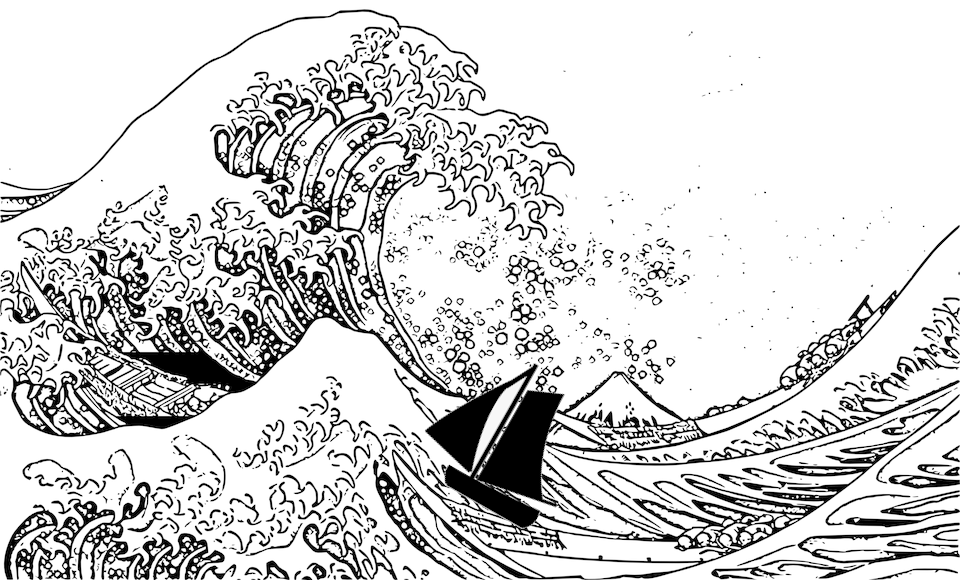Is The Open Boat A Metaphor For Fear?

The following is a journal entry by Casey Rollins, in response to a short story by Stephen Crane called The Open Boat, assigned to him to read for one of his classes.
I am curious as to the deeper meaning behind the story. I suspect that there is one. In my opinion, it is a metaphor about people who are in a very bad place, perhaps mentally, perhaps in reality, which is represented by the ocean. This situation is entirely exhausting, and makes you constantly wonder if you’re going to die. In fact, in chapters 4, 5, and 6, there is a repeated phrase where the main characters think this.
Now, there’s also a very good place, which is represented by the shore. However, getting ashore takes a great risk because there is a possibility of death and danger. You could crash upon a reef and get stuck there forever. You could get caught up in a whirlpool, like these characters did in the story. You could even get shipwrecked on a craggy rock and die a watery death. You’re stuck in between a couple of really hard places; either stay where you are, where you can technically survive, but have a miserable life, or go ashore, where there is great safety, rest, and plenty of caring people just waiting to help you and take care of you. The question is, do you face the fear of potential danger to actually resolve your problem, or will you wuss out and stay in the ocean?
Well, these characters decide that they would rather take the chance and go ashore, once the light of the morning sun shines upon them and they can no longer ignore the reality of the beach.
In my opinion, life can be a lot like this. You can be caught in a loop of endless negative thoughts, perhaps even trapping yourself by surrounding yourself with people or resources who echo the very negativity that plagues you. Perhaps you worry that if you stop, you might feel like no one understands you or cares about you and you’re all alone and you’ll fall into an even deeper, darker, and deadlier despair, crashing on the reef of loneliness and drowning in sorrow and isolation. But getting out of that funk allows you to look out and see your surroundings more clearly. There are probably people on shore waiting to help you get to shore, just in case you can’t make it there on your own. Friends, family, God, maybe even pets. One might try and fight the tug and pull to eventually get out of your present, self-defeating situation and leave for the safety of shore, but your fear might call for you to flee that potential haven. However, as this story shows, it is absolutely worth the risk to make a run for it and leave the situation behind.
I don’t know, perhaps that’s not what this story was about. I just found this to be a fascinating extrapolation of the story, and the analogy, once it appeared in my head, felt quite apt.
Written by Casey Rollins.






